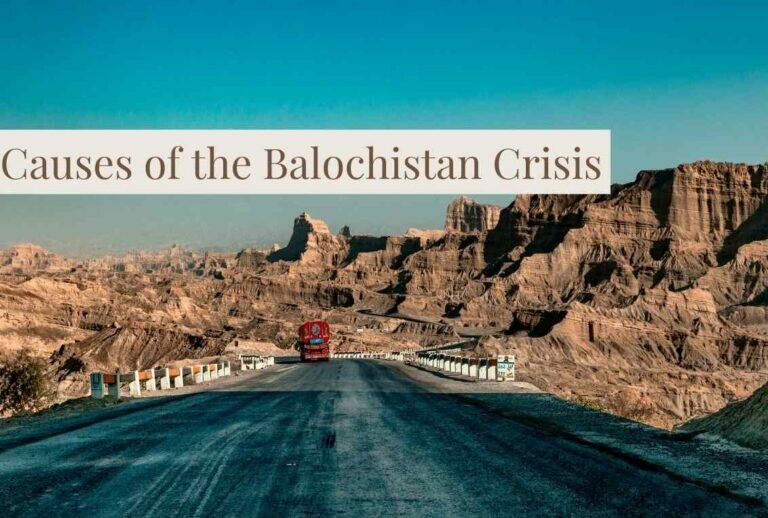Pakistan Floods of 2022 & the Role of NDMA
I. Introduction
The Pakistan floods of 2022 were devastating natural disasters that affected millions of people in several provinces. Heavy monsoon rains caused flash floods, landslides, and overflowing rivers. They led to widespread damage to infrastructure and the displacement of millions of people. The floods also destroyed crops and livestock, leading to food shortages and economic losses.
In the face of this crisis, the National Disaster Management Authority (NDMA) played a critical role in coordinating the national response. It provided emergency relief to those affected. NDMA is the primary government agency responsible for disaster management in Pakistan. It was tasked with ensuring preparedness, response, and recovery measures to mitigate the impact of the floods.
This essay will examine the 2022 Pakistan floods and the role of the NDMA in disaster management. The essay will provide an overview of the floods and their impact on Pakistan. It will also tell the analysis of the role of the NDMA in disaster management. The essay will also discuss lessons learned from the floods and make recommendations for improving disaster preparedness and response in Pakistan. Finally, the essay will emphasize the importance of disaster management in Pakistan and the role of the NDMA in ensuring preparedness and resilience in the face of future natural disasters.
II. Overview of the 2022 floods
The 2022 floods in Pakistan were caused by heavy monsoon rains, which led to flash floods, landslides, and overflowing rivers in several provinces. The floods affected millions of people, causing widespread damage to infrastructure, including roads, bridges, and buildings. The floodwaters also destroyed crops and livestock, leading to food shortages and economic losses.
According to the National Disaster Management Authority (NDMA), from 14 June to October 2022, floods in Pakistan killed 1,739 people and caused ₨ 3.2 trillion ($14.9 billion) of damage and ₨ 3.3 trillion ($15.2 billion) of economic losses. The most severely affected provinces were Punjab, Sindh, and Balochistan, where thousands of people were displaced from their homes and forced to seek shelter in makeshift camps or with relatives.
The floods also had a significant impact on Pakistan’s economy, with damage to infrastructure and agriculture estimated to cost billions of dollars. Crops such as wheat, rice, and cotton were destroyed, leading to food shortages and rising prices. The floods also damaged transportation and communication networks, making it challenging to access affected areas and deliver emergency aid.
The 2022 floods in Pakistan highlight the country’s vulnerability to natural disasters, particularly in the context of climate change. The frequency and intensity of extreme weather events such as floods, droughts, and heat waves are expected to increase in the coming years, making disaster management a critical priority for Pakistan’s government and people.

III. The role of the NDMA in disaster management
The National Disaster Management Authority (NDMA) is the primary government agency responsible for disaster management in Pakistan. The NDMA’s mandate is to ensure preparedness, response, and recovery measures to mitigate the impact of natural disasters such as floods, earthquakes, and droughts.
In response to the 2022 floods, the NDMA activated the National Emergency Operations Center (NEOC). It was activated to coordinate the national response and deployed emergency response teams to the affected areas. The NDMA worked closely with provincial and district-level disaster management authorities. Furthermore, they worked with non-governmental organizations and international aid agencies, to provide emergency relief to those affected.
The NDMA’s response to the floods included a range of measures to address immediate needs. They did search and rescue operations, evacuation of affected communities, provision of food and shelter, and medical assistance. The NDMA also prioritized efforts to restore critical infrastructure. It included roads and bridges to enable the delivery of aid and support economic recovery.
Despite these challenges, the NDMA’s role in disaster management in Pakistan remains critical. The agency plays a crucial role in ensuring that the government is prepared to respond to natural disasters and is working to improve disaster risk reduction measures, such as investing in early warning systems, strengthening community resilience, and promoting disaster preparedness at all levels of society.
The 2022 floods in Pakistan serve as a reminder of the importance of disaster management and the need for continued efforts to improve preparedness and response in the face of future natural disasters. The NDMA’s role in this effort is essential, and the agency will need to work closely with other government agencies, civil society organizations, and international partners to address the complex challenges posed by climate change and other natural disasters.
Also Read: How to Prepare for Current Affairs Paper?
IV. Lessons learned and recommendations
The 2022 floods in Pakistan highlighted several lessons that can inform future disaster management efforts. One key lesson is the importance of investing in disaster preparedness and risk reduction measures, such as early warning systems, flood mapping, and community-based disaster management plans. Improving these measures can help reduce the impact of natural disasters and ensure a more efficient and effective response.
Another lesson from the floods is the need for greater coordination and collaboration between different government agencies, non-governmental organizations, and international partners. The floods highlighted the importance of having clear lines of communication and effective mechanisms for sharing information and resources, as well as the need for strong leadership to coordinate response efforts.
In addition, the floods underscored the importance of addressing the underlying drivers of vulnerability, such as poverty, inequality, and climate change. Efforts to reduce these drivers can help build resilience and ensure that communities are better prepared to withstand and recover from natural disasters.
Recommendations:
- Investing in disaster preparedness and risk reduction measures, such as early warning systems, flood mapping, and community-based disaster management plans.
- Strengthening coordination and collaboration between different government agencies, non-governmental organizations, and international partners, including improving communication and sharing of resources.
- Addressing the underlying drivers of vulnerability, such as poverty, inequality, and climate change, through measures such as social protection programs, disaster risk reduction policies, and climate adaptation strategies.
- Conducting post-disaster assessments and incorporating lessons learned into future disaster management plans to improve the effectiveness of the response.
- Strengthening disaster governance and institutional frameworks to ensure that disaster management is prioritized and well-coordinated across all levels of government.
By implementing these recommendations, Pakistan can improve its disaster management capacity and build greater resilience to future natural disasters.
Also Read: Tips & Tricks for Remembering the Authors of Books
V. Conclusion
n conclusion, the 2022 floods in Pakistan were a devastating natural disaster that highlighted the importance of disaster management and the critical role of the National Disaster Management Authority (NDMA) in responding to such events. While the NDMA played a vital role in coordinating the national response and providing emergency relief to those affected, there were also criticisms of the agency’s preparedness and coordination efforts.
Moving forward, it is essential that Pakistan invests in disaster preparedness and risk reduction measures strengthens coordination and collaboration between different government agencies and international partners, and addresses the underlying drivers of vulnerability to build greater resilience to future natural disasters.
By implementing these measures, Pakistan can ensure that it is better prepared to respond to natural disasters and protect the lives and livelihoods of its citizens. The NDMA will continue to play a critical role in disaster management, and it is essential that the agency is adequately resourced and supported to fulfill its mandate effectively. Ultimately, disaster management must be a priority for all levels of government, and concerted efforts must be made to reduce the risk of future disasters and build greater resilience in the face of climate change and other global challenges.







